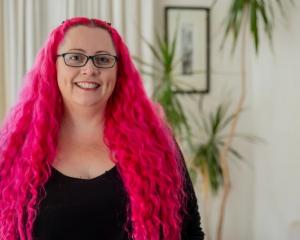Daily Covid-19 cases yesterday returned to levels not seen since April, as a new wave of the disease continues to surge across the country.
Across New Zealand, 10,290 new community cases were reported, the highest figure since April 21.
In the South, 847 new cases were reported, the highest number of cases in the region since 920 new cases were reported on May 12.
Southern case numbers in the initial Omicron outbreak peaked on March 23, at 1631.
There have been 26 days when more than 1000 cases have been reported in the South.
Covid modeller Dr Michael Plank warned earlier this week the current wave of the pandemic was likely to result in a return to case numbers similar to those posted earlier this year.
The South has reflected the national trend of a burgeoning seven day rolling average of cases.
Nationally, the rolling average is 7591. A week ago it was 5808.
In Otago and Southland, the rolling average yesterday was 661. A week ago it was 478.
The surge in new cases in the South has coincided with an increase in the number of patients in southern hospitals who have Covid-19.
Yesterday, 31 people who had Covid-19 were being cared for in southern wards. A fortnight ago it was 24.
That number was close to the capacity of the South’s dedicated Covid-19 wards.
A fortnight ago, the then Southern District Health Board had to defer all but emergency and cancer surgery for a day due to high levels of staff absence due to illness.
Health New Zealand Southern medical officer of health Prof John Eastwood said the rise in cases was sad but not a surprise.
"It was always predicted that Covid-19 numbers would rise during the winter months, at the same time as the number of people with influenza and other seasonal illnesses also increased."
Anyone anxious about the resurgence of Covid should follow public health advice, such as mask-wearing, practising good hand hygiene and staying home if they were sick, Prof Eastwood said.
"The other thing everyone can do is to go and get their Covid-19 booster if they are eligible and encourage their friends and whanau to do the same."
Covid-19 Response Minister Dr Ayesha Verrall said yesterday the country was facing increasing cases and — with the BA.5 strain — another surge, but tweaks to the Orange setting were the focus ahead of any move to a more restrictive Red.
Asked about the issue at the health select committee, Dr Verrall said the focus was on the measures in Orange.
"We are facing increasing cases at the moment and we see that we are likely to have that BA.5 come and give us another surge of cases, as we have previously experienced.
"At the moment, we don’t see anything that is changing us away from the current Orange setting.
"We constantly review what we are doing, but ... I want to make it very clear that our emphasis is on the sorts of measures we currently have in place at Orange and looking comprehensively at whether they can be improved."
A week ago, Dr Verrall decided to stay in Orange as case numbers started to creep up, saying cases and hospitalisations were still much lower than at the peak of Omicron earlier in the year.
However, she said additional measures were needed to help reduce spread, partly because of the pressure on hospitals from other illnesses, such as the flu.
These included providing suitable masks to school pupils and teachers, and extending free flu vaccines to children aged 3-12 years old.
She also reduced the period within which people had to test again if they got symptoms after recovering from a Covid-19 infection — from three months to 29 days. — Additional reporting The New Zealand Herald












